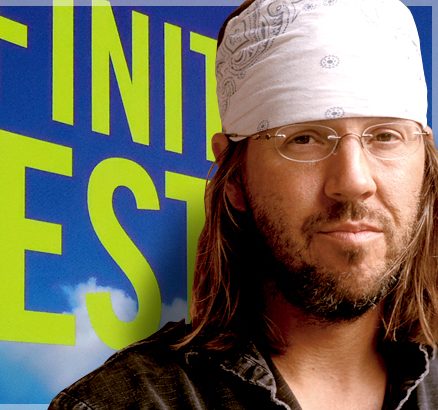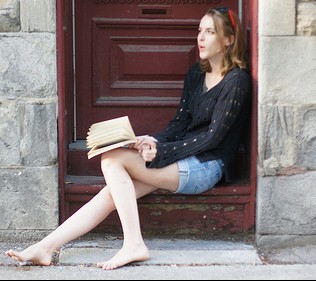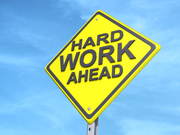Things to Consider When Choosing a Critique Partner
Today’s guest post is written by editor Megan Harris:
You did it! You wrote “THE END” and have finally finished writing your book. Completing the story you have worked hard on for months or even years is quite a feat, and now comes refining it to self-publish or submit to agents if choosing the traditional publishing route.
When it comes to selecting a critique partner for your book, it’s important to find one you can develop a rapport with and depend on to provide constructive, thorough feedback. You have likely looked your story over and know it from front to back, but having another set of eyes look it over could reveal mistakes even the most skilled writer may miss.
One mistake many authors make is to work with a close friend on thorough review for their books. While you may initially think you can separate your personal feelings from professional business, there are a few reasons you might choose not to work with your friend on your novel.
This doesn’t mean you can’t become friends with a critique partner. On the contrary—critique partners are great friends to have on your side for feedback and support. However, if you don’t have the ability to separate your personal and professional relationship when receiving feedback, it may be better to rely on an acquaintance or a reference from another writer for help.
What Is a Critique Partner?
If you’re unfamiliar with critique partners, they are frequently used in early stages of review to provide feedback on a manuscript. Many writers work with other writers and trade work in exchange for feedback, thus forming a critique partnership.
This relationship differs from working with an editor in that writers typically provide the feedback as a courtesy to one another and may identify elements of the story from a deeper level. While editors often look for grammatical errors and sentence structure line by line, critique partners provide holistic feedback the writer can apply when refining the story.
Challenges of Working with Friends as Critique Partners
If a friend offers to be your critique partner and you are unsure if it’s a wise step, it may be best to go with your gut. Only you can decide if the relationship can withstand the critique and changes to your book.
Consider the following if you do decide to work with a friend as a critique partner:
- A friend may be afraid to hurt your feelings or ruin your relationship. One of the most critical problems writers face when a friend becomes a critique partner is separating personal feelings from the task at hand—which is to improve the book. A friend might feel the need to tread lightly and be encouraging, but when it comes to making major changes, she might worry the feedback could harm your relationship for the long-term.
If you and your friend can come to an agreement to separate your working relationship with your personal one, then proceeding from here is possible. However, if you begin to work together and find it’s too difficult, stop and salvage your relationship, then look for another critique partner with whom you don’t have these personal dynamics.
- A friend may not be objective. Working with a friend can lead to problems with objectivity. A critique partner must pinpoint major flaws, and a friend’s emotional ties to you may cause her to overlook crucial aspects of your plot, character development, and content structure. A friend may try to be “nice” and keep the story as is or make minimal changes when the book has major flaws that, when published, readers will notice.
On the other hand, the advice from a critique partner who does not fear the fallout that could come from honest, open feedback may be difficult to take, as many writers claim to have thick skins but may take the criticism too personally. If you think you can stomach the advice from an experienced critique partner, you might consider choosing such a person over a friend.
- A friend may have other contingent relationships to consider. Does your critique partner have ties to your family, your spouse, or other close friends? In providing feedback and reviewing your novel, she could be afraid of how the changes she proposes affect those relationships. For example, if your friend knows your spouse and your spouse asks, “What did you think of my partner’s book?” she could fear giving an answer that may jeopardize that relationship. Moreover, she could worry word of her honest feedback might get back to you, which may or may not match up with what she told you.
When you work with a critique partner with no personal ties to people you are close to, other relationships you have are less likely to be affected.
Friends as Supporters of Writers
If you decide to work with a friend as your critique partner, keep in mind the challenges you may face in your relationship and have an agreement in place to separate your personal feelings with the changes suggested for the book. If you decide not to work with your friend, however, she can still play a crucial role as you build your marketing strategy and begin selling your book.
There are a number of ways friends can be of help:
- Provide beta reading and feedback about likes, dislikes, themes, etc. Many writers work with beta readers at the onset of their project in order to identify general flaws as well as themes they may use in a book club guide at the end of their novel. A critique partner is similar to a beta reader, but beta readers are more likely to be friends, fans of your work, or other people who enjoy reading but may not respond on a deeper level of content review the way a critique partner would. Asking your friend to act as a beta reader still allows her to be part of your process in a helpful way.
- Act as a brand ambassador and hype up your book before launch. If you have a friend with an extensive social network, ask her to talk about your book to others and get people excited for its release. A friend with community ties may also help you make connections with local libraries, book clubs, schools, and other organizations that could fall under the demographic you would like to reach.
- Provide reviews after publication. If your friend enjoyed the story, ask her to leave feedback and provide a review on Goodreads, Amazon, or any place books are sold and allow reviews. If your friend is tech savvy and has a blog, a review on that blog with links back to your website could also help with promoting.
- Act as a cheering squad when the process becomes difficult. Let’s face it—writing is tough work! Having a friend close by to vent to, talk to about the challenges you are experiencing, and share successes with can make the experience more enjoyable. If you feel your friend can provide a good shoulder to cry on or a high five to lift your spirits, talk to her about being a supporter for your books.
It’s not completely outlandish to work with a friend who takes on the role as a critique partner, but your relationship may take a toll. Only you can decide what’s best for your situation, and enlisting the aid of an experienced critique partner, one with whom you have an amicable relationship but can trust to provide quality work regardless of feelings, may be a desirable route for improving your book.
 Megan Harris is an experienced independent editor, formerly with Evolved Publishing. She currently provides editing services to self-published authors and small businesses seeking her expertise. Connect with Megan on Twitter or on her website, which includes a blog with writer resources and her thoughts about editing.
Megan Harris is an experienced independent editor, formerly with Evolved Publishing. She currently provides editing services to self-published authors and small businesses seeking her expertise. Connect with Megan on Twitter or on her website, which includes a blog with writer resources and her thoughts about editing.












Good stuff.
I don’t use a critique partner, but I do use beta readers. However, unlike some, I make it a point to use non-friends for beta feedback since I’m seeking that harsh truth. 🙂
Hi Rick,
Thanks for the comment! I think beta readers are quite valuable, and it’s good you use non-friends, too. Sometimes it helps to have someone on your side that is objective and can deliver “harsh truth,” as you called it. Many writers trade work with each other and so that’s when critique partners come in, but it’s great you have found a solution that works for your writing. I appreciate you taking the time to read my guest post!
This is a great article! Thank you so much for your words.
I’m wondering, from an editor’s perspective, is there any point in having your first draft read? I’m finishing up the last few chapters of my first novel (young adult fiction) and I know I want to seek an editor after it’s done. However, in the meantime, should I seek a critique partner for the first draft? Or should I wait until I’ve gotten my edits back and have a solid (maybe publishable) draft done before I have a partner read?
Hey Kyle – great question! I believe a critique partner might be more suitable to have before you hire an editor. That way, they can recognize any major flaws, such as developmental issues, before the editor steps in. The more time you take to review your work before it goes to an editor, the better. You may even save some money on your project rate if there are fewer changes to make. Good luck!
Thanks again! This is giving me clarity on the next steps
Hey Kyle – great question! I believe a critique partner might be more suitable to have before you hire an editor. That way, they can recognize any major flaws, such as developmental issues, before the editor steps in. The more time you take to review your work before it goes to an editor, the better. You may even save some money on your project rate if there are fewer changes to make. Good luck!
Regardless of how you call the people who’ll give you a hand with your book, whether they’re beta readers, critique partners, editors, whatever, you should first start with the content (story, plot, characters…), then the style and grammar, and finally at the end proofreading. There’s no point in having the grammar checked if you’re going to realize you have a plot hole half way through the story and have most of it rewritten, especially if you’re paying for it. If you’re going to hire professionals, then the proper sequence is content editor, copy editor then finally proofreader. If you’re going with peer help, then it’s usual that an alpha or a beta reader give general impressions about the story (they’re usually readers, not writers, or at least act as readers) while a critique partner looks at it from a writer/editor perspective (making sure everything is according to the “rules of the trade”, so to say. A reader doesn’t necessarily know what head popping is, for example), and can include both content and grammar, depending on mutual agreement (or the grammar skill of the partner). And then after all that you still need a proofreader. What ever you choose, just make sure you don’t pay anyone to check your grammar unless you’re absolutely sure that’s the final version of the story.
Also, keep in mind there are critiquing sites you can use for this purpose, like scribophile.com and critiquecircle.com, although over there it is more likely you’ll get lots of people critiquing random chapters of your book, instead of one person looking at the whole of it, but both types of feedbacks are useful in their own way.
Thanks for the input, Catie!
Thank you, Catie! I’ll be taking all this into consideration going forward. You rock.
I find this part disturbing coming from a professional editor:
“This relationship differs from working with an editor in that writers typically provide the feedback as a courtesy to one another and may identify elements of the story from a deeper level. While editors often look for grammatical errors and sentence structure line by line, critique partners provide holistic feedback the writer can apply when refining the story.”
Surely not every editor is just a copy editor? A good editor should work on the content of the book, storytelling, plot, characterisation… The “deeper level” should not be outside of her job description.
Catie,
I respect your critique of my guest post. However, some editors do act as line editors rather than developmental editors. It’s not outside of the bounds of the working relationship. Of course they would provide a deeper level of editing if it’s necessary, depending on what the client needs or wants for their book.
If they have already worked with a critique partner, beta readers, have done their own edits, etc. and just want to confirm the necessary content review, structure, characterization, etc. with the editor, then something like a developmental edit might not be necessary to the project. It is possible to over-edit, and that is up to the writer to determine whether they should still have a development review or forego the deep edit because this has been done already. I apologize if that wasn’t clear within the context of the post.
Thanks again for your contribution and for reading the post!
I’m sorry if I came off too harsh, I didn’t mean to. I just believe that there should be a distinction between a copy editor and a content editor, since they deal with two completely different phases of manuscript development. It looks to me like content editors have started dying out since the rise of self publishing because a lot of writers are turning towards cheaper alternatives like beta readers and critique partners. I’ve even heard complaints from some writers who have both traditional and self publishing experience that freelance editors don’t get as invested as those working for publishing houses because they don’t see it as their “day job”, so to say. On the other hand, I’ve heard some stories where publishing house editors don’t get involved at all. But, on top of all that, I’ve also heard stories from writers who have worked with some great content editors, both indie and traditionally, and I just feel that an indie writer should know that she has an option of hiring a good content editor, if she can afford one.
You’re so right! Self publishing has been a boon for editors but unfortunately also leads to some writers working with people who may not provide a thorough review or who may not have the right credentials. In my background, the small press I worked with provided content review and line edits for authors before publishing because the focus is on quality, not quantity. Now that I’m an independent editor, I have also adopted an attitude focusing on quality because it’s so important to put out a good product, not just say, “Good enough” and hit “publish” when there’s work to be done.
It’s definitely something writers need to be aware of when they’re shopping around and researching their service providers. I’m actually working with a writer right now who has published her first book, but isn’t happy with it. In my review, I saw significant errors from just the first chapter alone, so it makes me wonder how many people have similar experiences with publishers that publish books as-is and then wonder why they receive the reviews they do or have lower sales. (Of course, marketing could be part of that but that’s an entirely different subject altogether.) We’re making edits to her books now so she can pitch to publishers or self publish later.
Thanks again for following up!
Those are good points, Catie. I began specializing in manuscript critiques a few years ago because I kept coming across so many authors who’d had their novels edited (line edited, as well as content edited) by editors who had never written and published any novels. This can be a real problem, for way too many novels get polished for grammar and punctuation that are seriously structurally flawed. Even traditional development editing includes heavy sentence correction, which, to me, at the early stage of a novel (especially by a new writer), is still not what’s needed. Not very many copyeditors have the deep writing experience to be able to critique, but that is what most writers need instead of a content edit. I’ve been training other editors, who are also novelists, to do critiques, and I now have a team that can handle pretty much any genre. I believe writers will save a lot of money, frustration, and heartache if they get a critique done before any editing.
Those are some really great points, Susanne. A critique is an essential step many books are missing. It sounds like you and your team of editors are paving the way towards an editing process that looks at the deeper issues. You’re making a real difference to the writers you reach and raise the bar for editors everywhere!
An excellent article. I will never ask a friend or a spouse to critique my work. One is far too critical and the other not objective and neither are objective. I will be looking for an outsider as I have done in the past.
Thanks for reading, Susannah!
Great article. I’m blessed to have a best friend who doesn’t worry about hurting my feelings, and who is an amazing critique partner and editor.
Of course I mean she doesn’t worry about hurting my feelings when it’s important to be truthful. She’s that friend everyone thinks they want who will really tell you when that hat makes you look stupid.
It takes a certain kind of person, I think, to be a friend like that (we both are) and to have a friend like that.
And I think your advice to not work with a friend as critique partner is spot on. Thank you.
Thanks for reading, Angie! It sounds like your relationship with your friend is really solid, and I think most writers would be envious to have that honesty and frank conversation on their side.
Megan,
I should have mentioned that we’ve been friends for 32 years. That kind of relationship takes a lot of time. We’ve been friends since we were three weeks old 🙂 Seriously, we met as teenagers and we’ve had our difficulties, but it’s worth developing a solid friendship when you meet the right person. It’s a lot like being married. It may also help that we live in different states now and see each other every couple of years; I think it’s easier to be that kind of honest in email and by phone, but we do maintain it in person because we’re used to it.
That’s great! Thanks for sharing your story, Angie. I hope you continue to have success and support with help from your life-long friend.
When I finished my first draft, I used a “content” editor (Tammy Greenwood). She is an author, and creative writing professor. She was able to say things a “friend” might never say. I can’t begin to tell you how much this has helped me as I work through my second draft. Yes, it cost some money, but not as much as I thought, and it was well worth it. I hope to complete my second draft by the end of this year.
Thanks for sharing, Douglas!
These are the most important qualities I look for in a critique partner or beta reader…
-reader of or interest in the novel’s genre and story question
-the ability to be frank and the interest in offering constructive feedback
-the ability to write well (good grasp of grammar, punctuation, story structure)